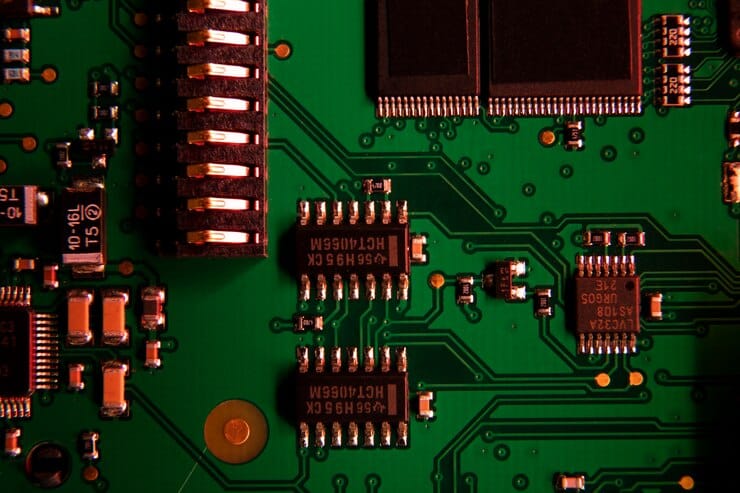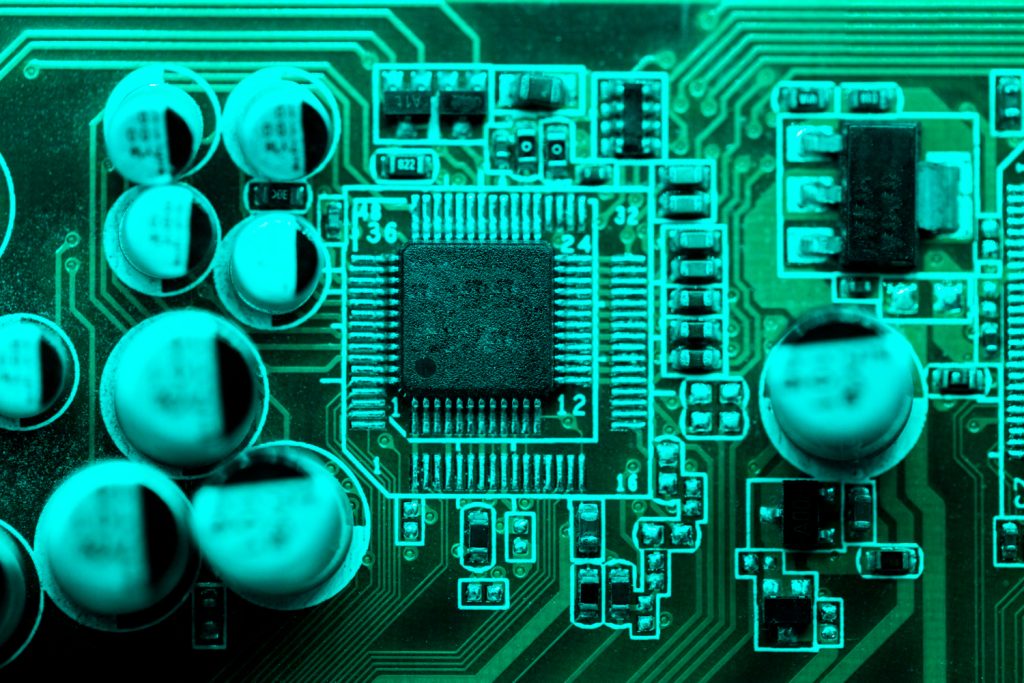
The demand for smartphones, wearables, and other miniature electronics is rising, leading to ever-more-powerful PCBs. To do this, you have to search for the best PCB manufacturers.
If you are one of these businesses looking for PCB circuit board manufacturers, selecting the right one is crucial.
It can impact your product’s quality, time to market, and overall profitability.
However, finding the perfect PCB assembly manufacturer in this competitive market can feel overwhelming. This guide will equip you with the key factors to consider, empowering you to make an informed decision.
You’ll explore essential aspects like quality control, production capabilities, and lead times, all tailored to ensure your business thrives with a reliable PCB manufacturer.
Key Factors to Consider When Choosing a PCB Manufacturer
Here’s the breakdown of critical considerations to help you find PCB circuit board manufacturers.
Expertise and Experience
When selecting a PCB circuit board manufacturer, it’s crucial to consider their expertise and experience in the industry.
Look for a company that has operated for at least 5-10 years and has a proven track record of delivering high-quality boards. Inquire about their experience with projects similar to yours, whether prototype development or high-volume production.
For example, ask about their experience with specific board types, layer counts, and feature sizes.
Additionally, check if the manufacturer holds relevant certifications, such as
- UL 94V-0,
- ISO 9001,
- IPC-A-600,
- EHS(ISO140001, ISO450001, ISO50001),
- QMS ISO 9001:2015,
- IATF 16949:2016,
- RoHS, or others.
These demonstrate their commitment to safety, quality standards, and consistent manufacturing processes.
A manufacturer with a strong portfolio of successful PCB board projects and industry-recognized certifications is likelier to deliver boards that meet your requirements.
PCB Assembly Manufacturer Capabilities
Determine if the manufacturer offers both PCB manufacturing and assembly services, as this can streamline your production process and ensure better coordination between the two stages.
Evaluate their capabilities in handling different board types, such as rigid, flex, or rigid-flex, and their ability to accommodate your specific requirements, including minimum feature size (e.g., 0.1 mm trace/space), layer count (e.g., up to 20 layers), and board size (e.g., up to 24″ x 18″).
Understanding the manufacturer’s full range of capabilities will help ensure they can meet the needs of your project, whether it’s a simple two-layer board or a complex multi-layer design with advanced features.
Additionally, inquire about their experience with specific technologies, such as HDI, blind/buried vias, or sequential lamination, if your project requires them.
Quality Control Measures
Quality is paramount in PCB manufacturing when opting for process strategies. Inquire about the manufacturer’s inspection processes throughout the production cycle, including incoming material inspection, in-process checks, and final testing.
Ask about their defect rate and warranty information to gauge their commitment to quality. Look for industry certifications related to quality, such as IPC-A-610 for the acceptability of electronic assemblies, IPC-6012 for the qualification and performance specification for rigid boards, or IPC-6013 for the qualification and performance specification for flexible boards.
These certifications demonstrate their adherence to strict quality standards and ability to produce boards that meet industry requirements consistently. Assess their quality control measures to ensure your boards meet the required specifications and reliability, minimizing the risk of costly rework or field failures.
Manufacturing Facilities and Technology
The location and infrastructure of the manufacturer’s facilities can impact the PCB board’s quality and consistency. When evaluating the manufacturing location, consider factors like political stability, intellectual property protection, and proximity to your or your customers’ locations.
Additionally, look for PCB assembly manufacturers that invest in modern equipment, such as automated optical inspection (AOI), X-ray inspection, or in-circuit testing (ICT), as these technologies can improve yield rates and ensure consistent quality.
Inquire about their commitment to sustainable manufacturing practices, such as waste reduction, energy efficiency, or environmentally friendly materials, as these can contribute to their overall reliability and responsibility as a supplier.
Scalability and Production Volume
Evaluate the PCB circuit board manufacturer ability to handle your current and future production needs. Ensure they can ramp up production for high-volume orders without compromising quality or delivery times.
Ask about their production capacity for panels per hour or boards per day, and compare it to your projected demand. Understanding their scalability will help you choose a partner that can grow with your business and support your long-term success.
Additionally, inquire about their contingency plans for handling unexpected surges in demand or potential disruptions, such as backup facilities or dual-sourcing strategies.
Cost and Pricing Structure
While cost is an important consideration, it shouldn’t be the sole factor in your decision. Obtain quotes from multiple PCB circuit board manufacturer and compare their overall value, considering factors like quality, service, reliability, and lead times.
Understand the pricing structure, including additional fees or charges for materials, tooling, setup, or expedited delivery. Compare the total cost of ownership, including the per-board price and factors like rework costs, warranty claims, and potential delays due to quality issues.
Look for PCB circuit board manufacturer offering transparent pricing and who are willing to work with you to optimize costs without compromising quality.
Lead Time and Delivery
Timely delivery is crucial for the success of your project. Inquire about the manufacturer’s typical turnaround times for prototypes and production runs and assess their on-time delivery track record.
Ask for references or case studies demonstrating their ability to meet deadlines consistently. Additionally, consider the shipping options and costs to ensure your PCB boards arrive when needed without unexpected delays or expenses.
Look for PCB circuit board manufacturer that offer expedited shipping options or have facilities near your or your customers’ locations to minimize transit times.
Customer Support and Communication
Effective communication and responsive customer support can significantly impact your experience with a PCB circuit board manufacturer. Evaluate their availability and responsiveness for technical support, as well as their communication style and language options.
Assess the online resources and documentation they provide to support your project throughout the manufacturing process, such as design guidelines, material specifications, or process capabilities. Look for manufacturers that assign dedicated account managers or project coordinators as your primary contact points, ensuring smooth communication and timely issue resolution.
A manufacturer that prioritizes PCB manufacturing and assembly customer service and provides transparent communication is likelier to be a reliable and trustworthy partner.
Material Sourcing
While core functionalities are crucial, some businesses may also consider the ethical sourcing of materials used in their PCBs.
Inquire about the PCB circuit board manufacturer supply chain and their source of raw materials. This can be relevant if you prioritize ethically sourced materials, particularly avoiding conflict minerals (tantalum, tin, tungsten, and gold) mined in war-torn regions.
Many manufacturers can provide information on responsible material selection and supply chain management practices.
Intellectual Property Protection
Protecting your intellectual property (IP) is vital.
Ask about the PCB circuit board manufacturer policies and procedures for safeguarding your design data. Look for non-disclosure agreements (NDAs) and secure data storage practices to ensure your designs remain confidential throughout manufacturing.
Tips to Follow When Making The Final Decision
After carefully considering the various factors outlined above, it’s time to make your final decision. Here are some additional tips to guide you:
- Shortlist and Compare: Based on your research, shortlist 2-3 PCB manufacturers who seem like strong contenders. Compare their offerings side-by-side to identify the one that best aligns with your project’s specific requirements and priorities.
- Request Samples and Quotes: Request prototype samples or capability brochures from your shortlisted manufacturers. This allows you to assess the quality of their work and compare pricing structures in more detail.
- Evaluate References and Reviews: Look for online reviews or ask shortlisted manufacturers for customer references. Speaking with past clients can provide valuable insights into their experience with the manufacturer’s quality, communication, and reliability.
- Schedule Calls and Visits (Optional): Schedule calls or even on-site visits with the shortlisted manufacturers. This allows you to ask in-depth questions, discuss your project in detail, and better understand their company culture and commitment to quality.
- Trust Your Gut: While data and comparisons are crucial, consider your overall impression of each manufacturer. Choose a partner you feel comfortable working with, a company that demonstrates a genuine interest in your project, and a willingness to collaborate effectively.
PCBLOOP Ticks All The Boxes Of Perfect PCB Circuit Board Manufacturers!
PCBLOOP offers over 20 years of experience in PCB manufacturing and assembly. We are committed to high-quality PCBs, on-time delivery, and cost-effectiveness. We cater to various industries and pride ourselves on being reliable business partners.
Our certifications include ISO 9001 (quality management), IATF 16949 (automotive quality), and RoHS (environmental compliance). We value diversity, ethics, and excellent customer service.
Whether you need a prototype PCB board, component sourcing, or plastic molding, PCBLOOP offers a wide range of services to meet your needs.
Conclusion!
Choosing the right PCB circuit board manufacturers is essential for your electronic project’s quality, timeliness, and cost-effectiveness. We hope this guide has equipped you with key considerations to simplify your decision-making process.
Explore factors like the manufacturer’s experience, capabilities, quality control measures, and production facilities. Consider scalability, pricing structure, lead times, and customer support.
Don’t forget about material sourcing and intellectual property protection.
By carefully evaluating these aspects and following the tips, you can select a reliable PCB manufacturer like PCBLOOP.
With their experience, certifications, and commitment to quality, we can become a trusted partner in your electronic endeavors.

